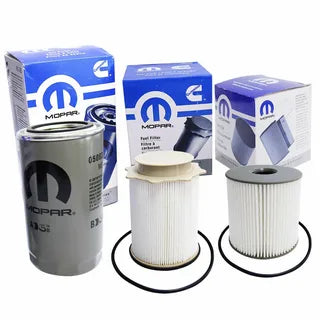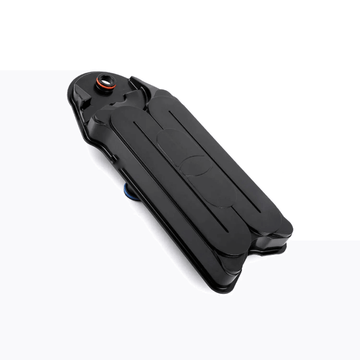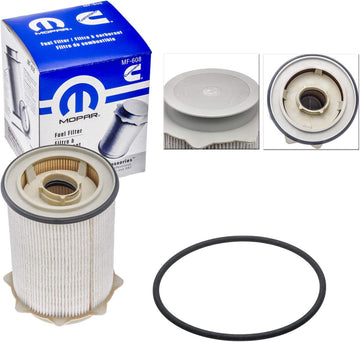Engine oil filters are essential for maintaining engine health. They remove contaminants, protect engine components, and help maintain oil flow. But with so many options on the market, how do you know which is the best oil filter for your vehicle?
This guide breaks it down with expert insights, practical tips, and trusted brand recommendations to help you choose confidently.
Why Engine Oil Filters Are Critical
A good engine oil filter:
-
Traps dirt, metal shavings, and sludge
-
Prevents oil contamination
-
Maintains oil pressure
-
Reduces engine wear
-
Extends engine life
Neglecting your oil filter leads to faster engine wear, poor fuel economy, and expensive repairs. That's why choosing the right one matters.
What Makes an Oil Filter the Best?
To find the best engine oil filter, look for these key features:
🔹 High Filtration Efficiency
-
Captures particles as small as 20 microns
-
Multi-pass filtration efficiency above 95%
-
Ensures clean oil reaches critical engine parts
🔹 Durable Build Quality
-
Synthetic or blended media (better than paper)
-
Metal end caps for strength
-
Silicone anti-drainback valve (longer lifespan)
🔹 Perfect Fit & Compatibility
-
Matches your vehicle’s OEM specs
-
Prevents leaks, improper oil flow, or pressure loss
🔹 Anti-Drainback Valve
-
Keeps oil in the filter when the engine is off
-
Prevents dry starts, especially in vertical/horizontal mounting
🔹 Bypass Valve
-
Activates if the filter clogs
-
Prevents engine oil starvation in extreme conditions
Top-Rated Engine Oil Filter Brands in 2025
Here are the most trusted oil filter brands for quality, longevity, and filtration performance:
✅ Mopar Oil Filters
-
OEM filters for Dodge, Jeep, Chrysler, and Ram
-
Built to factory specs for 5.7 HEMI and 6.7 Cummins
-
Excellent pressure handling and filtration
✅ Bosch Premium Oil Filters
-
Synthetic blend media with 99% efficiency
-
Great for daily drivers and high-mileage vehicles
-
Withstands high oil pressure
✅ Mobil 1 Extended Performance
-
Designed for long oil change intervals (up to 15,000 miles)
-
Durable canister and advanced media
-
Ideal for full synthetic oil users
✅ Fram Ultra Synthetic
-
99%+ dirt-trapping efficiency
-
Dual-layer synthetic media
-
Rated for 20,000 miles with synthetic oil
✅ K&N Performance Gold
-
High-flow design for performance engines
-
Wrench-off nut for easy installation/removal
-
Great for towing, racing, and heavy-duty use
How to Choose the Right Oil Filter for Your Vehicle
When shopping for an oil filter, keep the following factors in mind:
-
Vehicle make and engine type
-
Recommended oil change intervals
-
Driving environment (urban, off-road, highway)
-
Type of motor oil used (conventional vs synthetic)
Pro Tip:
Always consult your vehicle owner’s manual or manufacturer’s recommendations to avoid compatibility issues.
When to Replace Your Engine Oil Filter
Regular oil filter replacement is essential for smooth engine operation. Signs it’s time to replace:
-
Drop in oil pressure
-
Unusual engine noise
-
Dirty or blackened oil
-
Oil leaks near the filter
Best practice: Replace the oil filter every time you change your engine oil.
Final Thoughts: Which Oil Filter is the Best?
The best engine oil filter is one that:
-
Matches your engine’s needs
-
Offers excellent filtration and flow
-
Comes from a trusted manufacturer
For most truck and diesel owners, Mopar oil filters are an ideal choice—especially for Cummins 6.7, 5.7 HEMI, and Ram diesel engines.
FAQs
1. What is the best oil filter for a 6.7 Cummins?
The Mopar fuel and oil filter combo is considered the best for 6.7 Cummins engines due to OEM fit, quality, and filtration efficiency.
2. How often should I replace my oil filter?
Every 5,000–7,500 miles (conventional oil) or up to 15,000 miles (synthetic), depending on driving habits and oil type.
3. Are expensive oil filters worth it?
Yes—premium filters offer better materials, more filtration capacity, and longer life, especially when using synthetic oil.
4. Can I mix synthetic oil with a standard oil filter?
You can, but synthetic filters are recommended for full synthetic oils due to their higher capacity and durability.
5. What happens if I delay replacing my oil filter?
Contaminated oil can circulate, leading to engine wear, poor performance, and eventually, serious engine damage.





